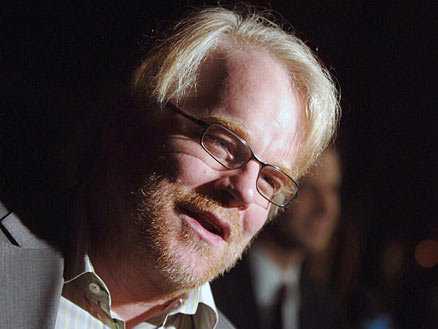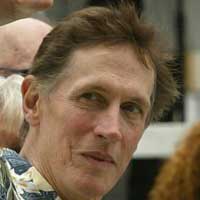Bayside resident Mark Metcalf is an actor who has worked in movies, TV and on the stage. He is best known for his work in "Animal House," "Buffy the Vampire Slayer" and "Seinfeld."
In addition to his work on screen, Metcalf is involved with the Milwaukee International Film Festival, First Stage Children's Theater and a number of other projects.
He also finds time to write about movies for OnMilwaukee.com. This week, Metcalf weighs in on the work of actor Philip Seymour Hoffman.
I've been working with and hanging out with actors all of my adult life. Because the job is to represent people from all walks of life and from all periods of history, I have made it my business to spend time with and study people who do a lot of different things.
Of all the people, I have known, actors, as a general rule, are the smartest, the best read, the most knowledgeable and articulate, the kindest, most compassionate, funniest, most self-aware, self-centered, and the cruelest.
I have never felt more alone than I have when in a room full of actors. But, I have also never felt more a part of a family, or a tribe, or a group of friends than when amongst people I am doing a play with or that I have done a film with.
Acting has brought me a lot of attention, some of which I crave and some of which I can easily do without. I think it's a lonely job. In film and television especially, you tend to work alone preparing and researching your part. You don't rehearse with the other actors very much and you perform with them quickly and, if you are working where you live, you go home. If you are on location, you go to the bar or restaurant and hang out.
In the theatre, you rehearse for four to six weeks and spend a lot more time talking and questioning each other. You also spend more time in the bar or restaurant before you go home. When the play finishes its run, you go home or to the next job, and the goodbyes are quick, and there are lots of "call me when you get back to the city" remarks, but often it doesn't happen. The next time you see someone is the next time you do a play with them, which may be a year or seven years in the future, if at all.
So, you learn to experience as much as you can each time out and then move on to the next experience without taking a lot along with you. You are liable to end up with a bunch of great stories, but you'll be darning your own socks.
All of this came to mind because I watched three Philip Seymour Hoffman films and was feeling a little depressed. Not because he was doing all this great work and I wasn't, although that is a feeling that actors are not immune to -- envy. I felt down mostly because all three characters in all three movies are lonely, desperate, depressed, and highly dysfunctional, by normal standards. But most of the interesting characters in movies are like that.
In "The Savages," Hofmann plays a depressed theatre professor in Buffalo whose father abused him but is now suffering from dementia and must receive care. There's a line in "A Chorus Line" where a character from Buffalo talks about trying to commit suicide until he realized that committing suicide in Buffalo would be redundant. It's a long winter in Buffalo. Longer even than here in Milwaukee. His sister, with whom he hasn't really gotten along but must now, is played by Laura Linney. Philip Bosco is the father who is definitely abusive and only slightly demented, but is dying. Hoffman's character lives alone. He has a Polish girlfriend who is being deported and he can't seem to bring himself to marry her, or she him, although he wants to and she is willing but they just can't seem to get it together.
He can't finish the book on Brecht he is supposed to be writing and nothing is working out very well. There are no more good days. The movie is darkly funny because it is so well observed and true, but it is ultimately depressing. Especially if you have a parent in a nursing home or heading that way, or are looking at the prospect yourself. Hoffman gives a brilliant performance of the kind we look for in actors these days. He completely cloaks himself in the character to a point at which you totally believe that he and the character are one.
Hoffman's character is married to Marisa Tomei, which ought to cheer him up; it would certainly cheer me up. She happens to be spending every Thursday in bed with his brother, but Hoffman doesn't notice because he has a very expensive heroin habit, the kind where you go to a nice apartment and a beautiful androgynous person shoots you up while you look at the view and listen to music. It's not the sordid kind of habit where you shoot up in the bathroom in the subway.
Ethan Hawke is a weak, pathetic character, easily manipulated by his brother, and his brother is so desperately self destructive that, from the beginning, there should be no hope for either of them.
This is not the kind of movie where you go out humming the tunes or hoping to run into one of the characters at the bar down the street. There are no car chases, no special effects; and the heist, which happens in the first 10 minutes, is a miserable failure. But the movie is brilliantly done. Hoffman, once again, completely inhabits the character he plays; or rather he allows the character to take him over so completely that there is no difference between the two. And except for the fact that both characters are depressed, albeit in very different ways, and they are both overweight, they bear very little resemblance to each other. But they do bear a phenomenal resemblance to real people. And that is his art.
Now, if you were to go on and finish the year of Philip Seymour Hoffman you would have to watch "Charlie Wilson's War." I don't recommend watching it except to finish the PSH trilogy.
With Mike Nichols directing, Tom Hanks and Julia Roberts starring and Hoffman in a supporting role, it should be a very good movie. But Hanks does all his work inside the frame. Never for a moment do you think that this character actually might exist, or have a life that you are not witnessing. And it is based on a real US Congressman, who really did the things he does in the movie.
Julia Roberts somehow got a reputation for being beautiful and irresistible and smart, so she is cast as a Texas woman of great importance, power and wealth. But I don't buy it for a moment. Nichols directs from such a distance, in such a dispassionate way, and Hanks and Roberts have made no more commitment than the most ordinary of movie stars.
But the movie is about people who, if anything, are passionate so it is doomed from the casting. Dinner conversation and the stories around the set were probably pretty good, but the movie isn't.
Except for Hoffman.
He plays a CIA agent. He is overweight, work obsessed, doomed to failure, extremely smart, a true lover of freedom and servant of his country. There is so much going on in every moment he is on screen, he is so deeply and thoroughly committed to understanding his character, that you long for him to come back into the story, you wish it was his story and you could follow him around. It should have been his movie. It's his war.
After watching these three, all of which came out last year, the only thing I question about Philip Seymour Hoffman is whether he can do comedy. Acting is about focus, concentration, commitment, intelligence, passion, and research. He makes me very proud to be in that tribe. But that level of work can leave you alone. The characters he plays are very isolated from the people around them, even the ones who love them and whom they love.
In "The Savages," he finds his way towards happiness at the end. He sees the possibility. In "Before the Devil Knows You're Dead," the only hope for him is silence and death. And in "Charlie Wilson's War," his character must find another war to analyze and to fight. It is a lonely, frustrating existence and he'll never get any respect for it. And he'll never be Jason Bourne. Never get the girl. But those are the choices that he makes.
Friends tell me that Philip Seymour Hoffman is not a good interview. I think he must live such a rich interior life, and such a sober, questioning one, that I am not surprised that he is somewhat ineffectual in clever conversation. He lives within his work. Let it speak for him.
Mark Metcalf is an actor and owner of Libby Montana restaurant in Mequon. Still active in Milwaukee theater, he's best known for his roles as Neidermeyer in "Animal House" and as The Maestro on "Seinfeld."
Originally from New Jersey, Metcalf now lives in Bayside.



